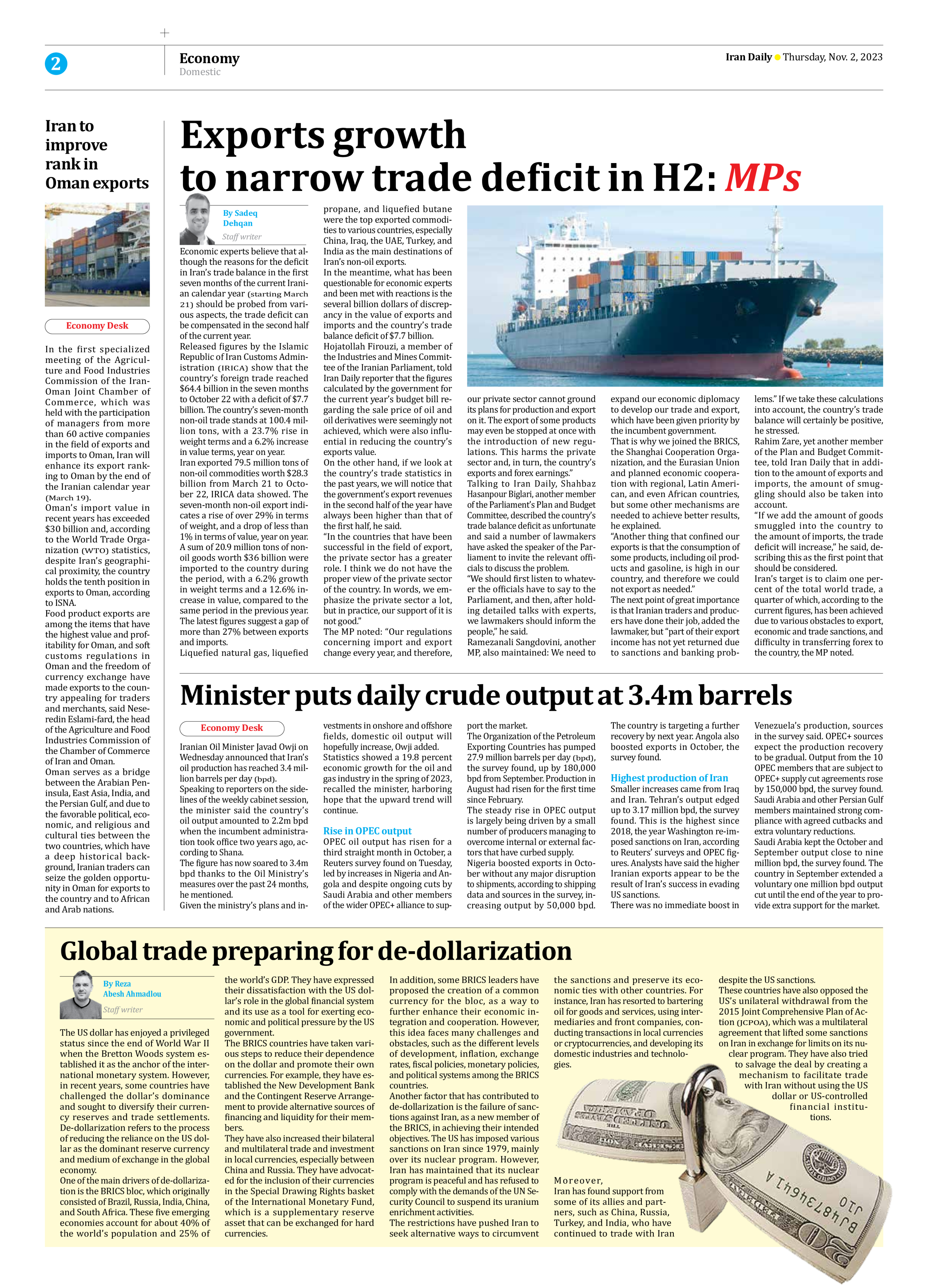
Global trade preparing for de-dollarization
By Reza Abesh Ahmadlou
Staff writer
The US dollar has enjoyed a privileged status since the end of World War II when the Bretton Woods system established it as the anchor of the international monetary system. However, in recent years, some countries have challenged the dollar’s dominance and sought to diversify their currency reserves and trade settlements. De-dollarization refers to the process of reducing the reliance on the US dollar as the dominant reserve currency and medium of exchange in the global economy.
One of the main drivers of de-dollarization is the BRICS bloc, which originally consisted of Brazil, Russia, India, China, and South Africa. These five emerging economies account for about 40% of the world’s population and 25% of the world’s GDP. They have expressed their dissatisfaction with the US dollar’s role in the global financial system and its use as a tool for exerting economic and political pressure by the US government.
The BRICS countries have taken various steps to reduce their dependence on the dollar and promote their own currencies. For example, they have established the New Development Bank and the Contingent Reserve Arrangement to provide alternative sources of financing and liquidity for their members.
They have also increased their bilateral and multilateral trade and investment in local currencies, especially between China and Russia. They have advocated for the inclusion of their currencies in the Special Drawing Rights basket of the International Monetary Fund, which is a supplementary reserve asset that can be exchanged for hard currencies.
In addition, some BRICS leaders have proposed the creation of a common currency for the bloc, as a way to further enhance their economic integration and cooperation. However, this idea faces many challenges and obstacles, such as the different levels of development, inflation, exchange rates, fiscal policies, monetary policies, and political systems among the BRICS countries.
Another factor that has contributed to de-dollarization is the failure of sanctions against Iran, as a new member of the BRICS, in achieving their intended objectives. The US has imposed various sanctions on Iran since 1979, mainly over its nuclear program. However, Iran has maintained that its nuclear program is peaceful and has refused to comply with the demands of the UN Security Council to suspend its uranium enrichment activities.
The restrictions have pushed Iran to seek alternative ways to circumvent the sanctions and preserve its economic ties with other countries. For instance, Iran has resorted to bartering oil for goods and services, using intermediaries and front companies, conducting transactions in local currencies or cryptocurrencies, and developing its domestic industries and technologies.
Moreover, Iran has found support from some of its allies and partners, such as China, Russia, Turkey, and India, who have continued to trade with Iran despite the US sanctions.
These countries have also opposed the US’s unilateral withdrawal from the 2015 Joint Comprehensive Plan of Action (JCPOA), which was a multilateral agreement that lifted some sanctions on Iran in exchange for limits on its nuclear program. They have also tried to salvage the deal by creating a mechanism to facilitate trade with Iran without using the US dollar or US-controlled financial institutions.







